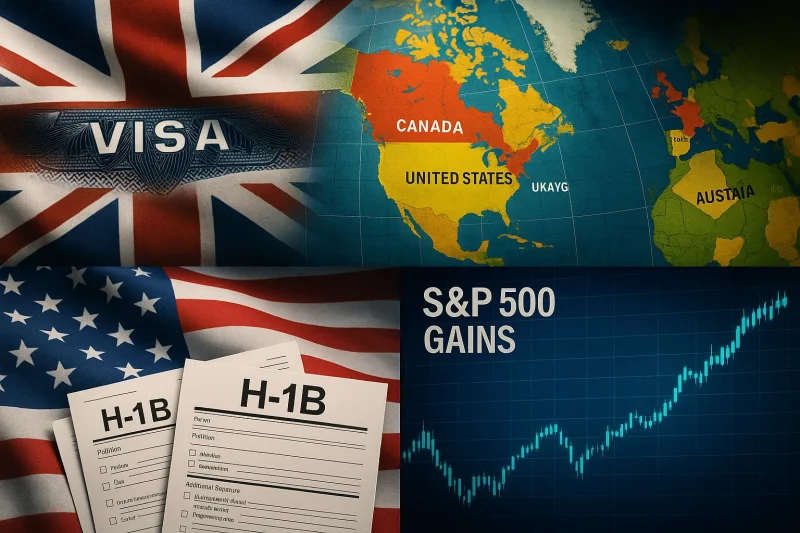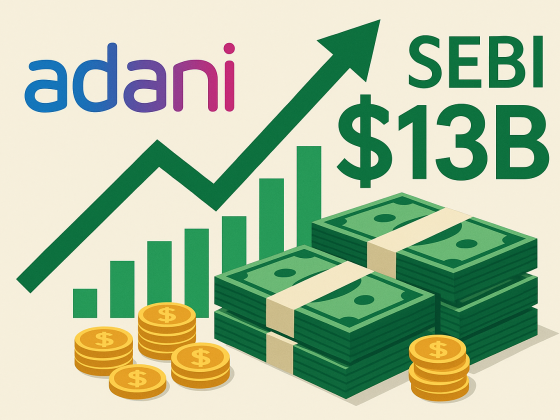Monday’s global headlines cover major shifts in policy and markets.
The UK plans to cut visa fees to attract skilled workers amid labour shortages, while Canada, Australia, and the UK formally recognise Palestine, aiming to revive hopes for a two‑state solution.
Meanwhile, the US clarifies one-time H‑1B fees, and Goldman Sachs raises its S&P 500 target, reflecting cautious market optimism.
A glance at Monday’s major news developments.
UK eyes bold visa fee cut
The UK is said to be planning a big change to cut visa fees for skilled workers, news platform Financial Times reported on Monday.
This comes as businesses struggle to find talent in areas like tech, health, and engineering. Visa costs have been a major blocker for many, pushing them to look at countries like Canada or Australia instead.
Prime Minister Keir Starmer is backing the idea to make the UK more attractive to international professionals.
Companies have welcomed the news, hoping it will make hiring easier and less expensive. But some experts warn that cutting fees is just part of the solution; more focus on training local workers is needed too.
The government hasn’t shared full details yet, but we are likely to hear more on this before the year’s end. It could be an important move to tackle the skills shortage and give the economy a boost. Read full report here
Canada, Australia, UK recognize Palestine
Canada, Australia, and the UK have taken a major step by formally recognising Palestine as a state.
The announcement came on Sunday in a rare show of coordination between the three allies. Leaders in all three countries said the move was about keeping hopes of a two‑state solution alive.
British Prime Minister Keir Starmer said it was time to give Palestinians the dignity of statehood while securing Israel’s right to safety. Canada’s Mark Carney stressed the decision was not against Israel but for peace.
In Canberra, Anthony Albanese called recognition a necessary step to break years of deadlock.
The reaction was immediate. Palestinian officials welcomed the decision, calling it a turning point in their struggle for recognition.
Israel, however, strongly criticised the move, warning it would only encourage extremist groups. With this step, the three countries join more than 140 others that already recognise Palestinian statehood.
US’s clarification on H‑1B charges
The White House has clarified that the new fee on H‑1B visas will apply only once for fresh petitions, easing concerns among technology companies and skilled workers.
The announcement on Saturday came after confusion over whether the additional charge would be imposed each year or during renewals.
Officials said the one‑time fee is meant to fund domestic workforce training while keeping the H‑1B program accessible for businesses that rely on foreign talent.
“This is not a recurring cost. It applies only at the time of filing a new petition,” a senior official said.
The clarification is seen as a relief for US tech giants and Indian IT firms, who make up the largest share of H‑1B applicants. Industry bodies had warned that annual fees would have raised costs sharply for employers.
The H‑1B program admits 65,000 skilled workers each year, plus 20,000 under the advanced degree exemption.
Goldman raises S&P 500 target
Goldman Sachs has raised its annual target for the S&P 500, signaling a more optimistic outlook for the US stock market.
The investment bank now sees the index hitting 6,800, up 2.04% from its previous forecast of 6,600.
The upward revision reflects expectations of steady economic growth and resilient corporate earnings despite inflation pressures.
Goldman’s analysts say strong consumer demand and business investment should support further gains.
Investors welcomed the news, though some remain cautious about potential risks like interest rate hikes and geopolitical tensions.
Overall, the new target points to confidence in the market’s ability to navigate ongoing challenges.
The post Morning Brief: UK visa fee cuts, H‑1B fee update and S&P 500 outlook appeared first on Invezz


